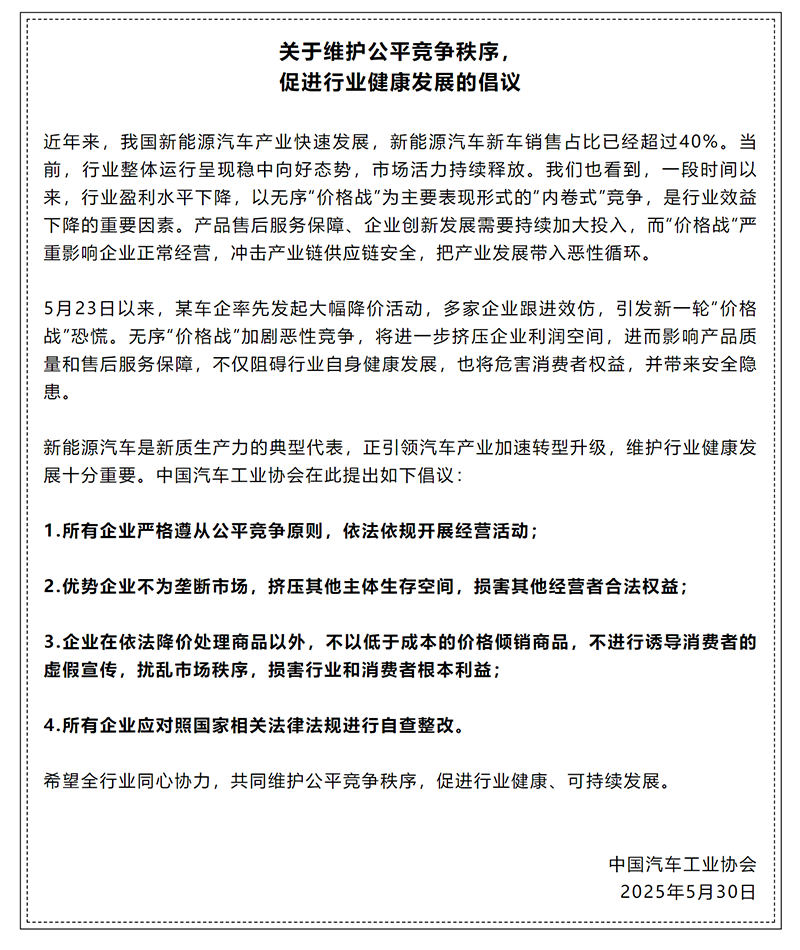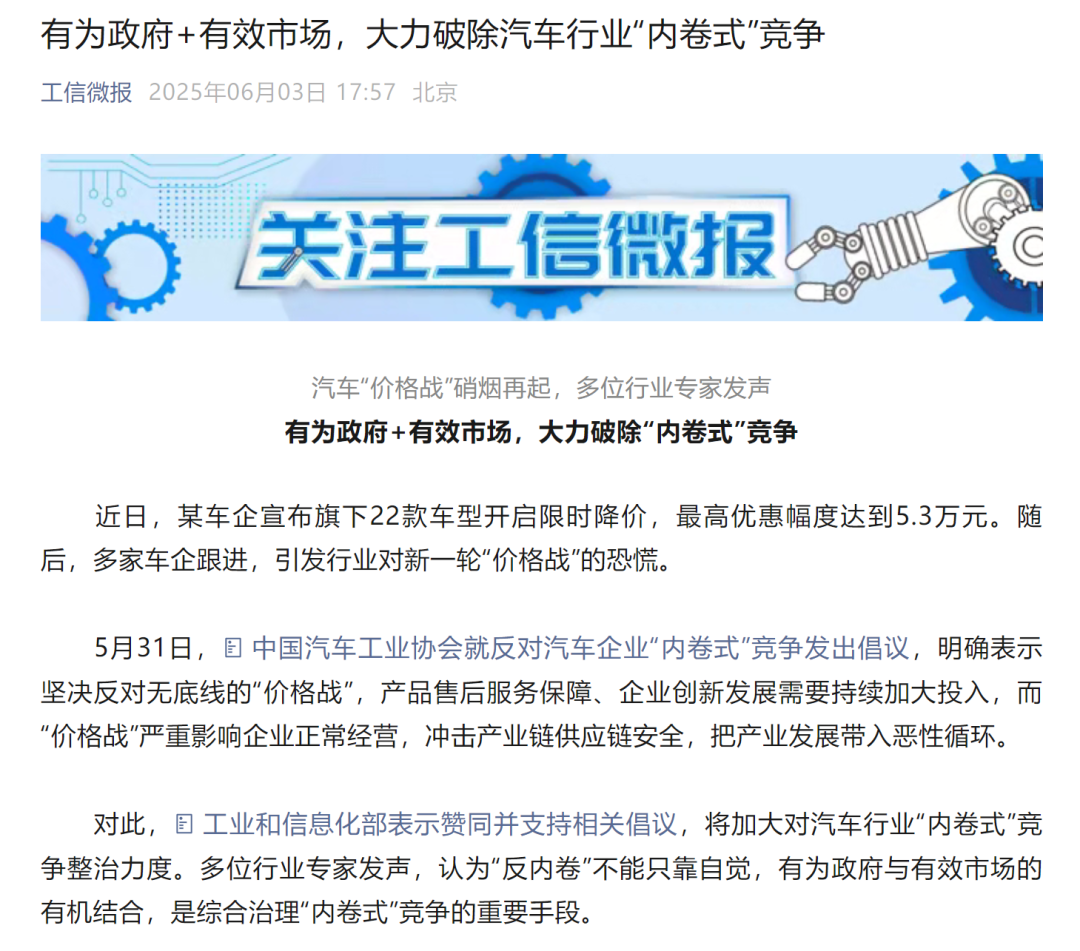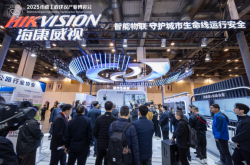Car Price War Reignites, Prompting Urgent Calls for a Halt from Multiple Departments!
![]() 06/04 2025
06/04 2025
![]() 588
588

The automotive industry's recent price war has garnered significant attention, prompting multiple government departments to issue statements opposing the practice. In response, the China Association of Automobile Manufacturers released the "Initiative on Maintaining Fair Competition Order and Promoting the Healthy Development of the Industry" on May 30, firmly opposing endless "price wars." This initiative received approval and support from the Ministry of Industry and Information Technology (MIIT) on May 31.
MIIT emphasized its commitment to intensifying efforts to rectify "involutionary" competition within the automotive sector, fostering industrial structure optimization, strengthening product consistency inspections, collaborating with relevant departments on anti-unfair competition enforcement, and implementing necessary regulatory measures. These actions aim to uphold a fair and orderly market environment, effectively safeguarding consumer interests. Additionally, on June 3, the China Automobile Dealers Chamber of Commerce issued an initiative urging the industry to resolutely resist "involutionary" competition, particularly in the form of "price wars." The impact of these price wars on the automotive industry is substantial, with industry profit margins standing at just 4.3% in 2024 and further declining to 3.9% in the first quarter of 2025, falling below the average for the manufacturing sector.
The persistence of the price war has further compressed corporate profit margins. For instance, component procurement prices have continued to decline by 10%-15% year-on-year, adversely affecting upstream operations and prompting suppliers to lower quality standards in certain areas. Downstream dealers have also experienced operational deterioration, with some even closing down, resulting in a decline in the timeliness, convenience, and reliability of after-sales services. In terms of products and services, some enterprises may cut corners or substitute inferior products to reduce costs during the price war, impacting product quality and safety and ultimately harming consumer interests. Moreover, in the pursuit of sales volume, enterprises may increase over-marketing and false advertising, further disrupting market order.
More crucially, disorderly "price wars" hinder continuous R&D investment by enterprises, affecting product quality, performance, and service levels, and potentially introducing safety hazards, seriously damaging consumer rights and interests. In the long run, the entire automotive industry's development momentum will be severely weakened, which is detrimental to the industry's healthy development and the cultivation of global competitiveness. Many industry experts have emphasized that combating "involution" cannot solely rely on self-consciousness; rather, an effective combination of government intervention and market mechanisms is crucial for comprehensively managing "involutionary" competition.
Several automakers, including Changan, Chery, GAC, NIO, and XPeng, have timely voiced their opposition to the new round of "price wars," calling on the industry to jointly embark on a new chapter of high-quality development for China's new energy vehicles. They believe that focusing on technology, experience, and service is a more vital development direction. The automotive industry's price war is not a sustainable solution. The opposition statements issued by various departments and related initiatives aim to guide enterprises to reduce costs and improve quality through technological and management innovation, thereby fostering the high-quality development of the automotive industry. Under the combined influence of policy guidance and market competition, the automotive industry is anticipated to gradually return to rational competition and achieve sustainable growth.




